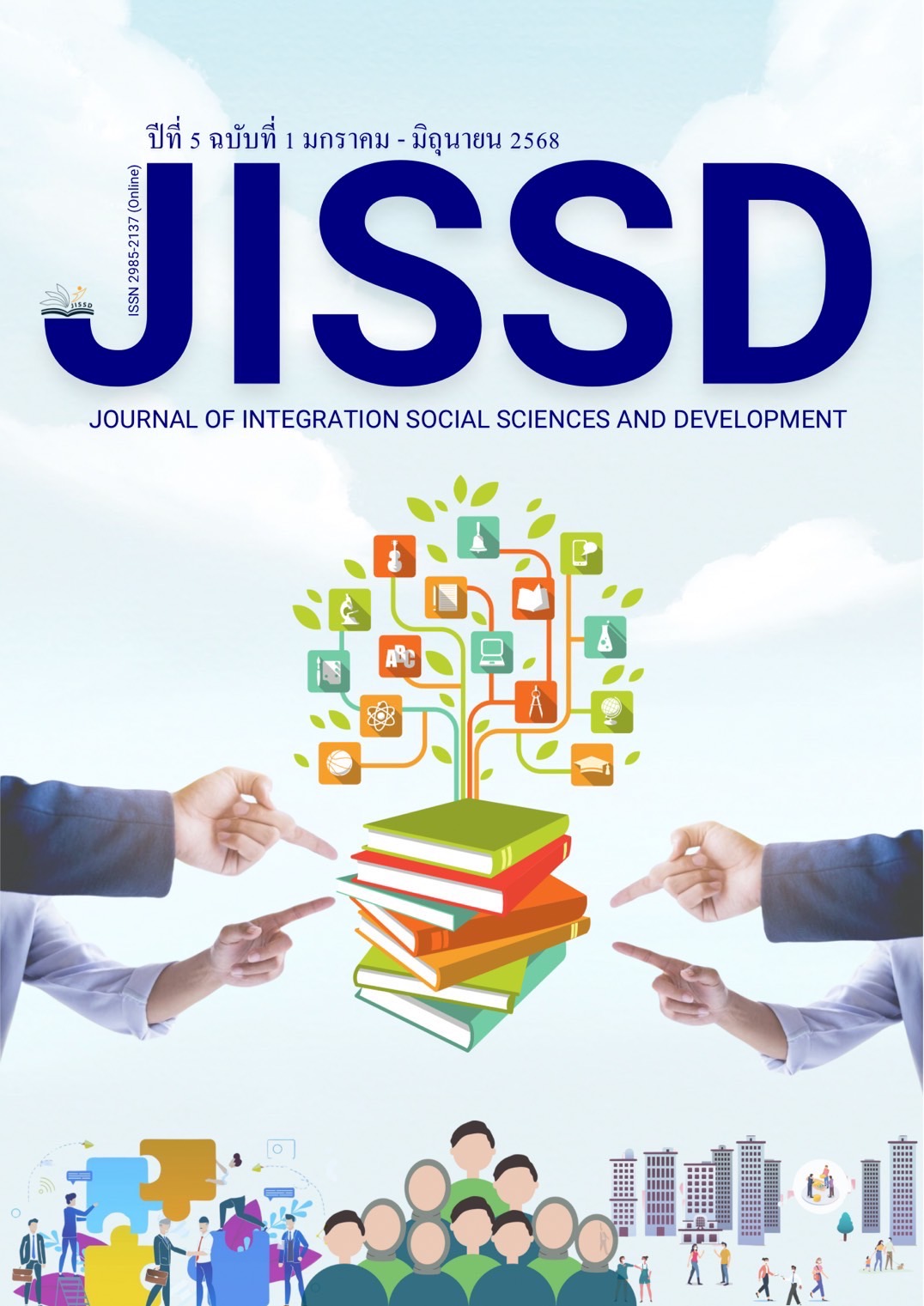Academic leadership of educational administrators under the Chaiyaphum Provincial Administrative Organization
Main Article Content
Abstract
This research aims to: 1) Study the academic leadership of school administrators under the Chaiyaphum Provincial Administrative Organization, 2) Compare the academic leadership of these administrators based on teachers' opinions classified by age, education level, and work experience and 3) Examine guidelines for enhancing academic leadership among these school administrators. The study population consisted of 234 teachers from 26 schools under the Chaiyaphum Provincial Administrative Organization. A questionnaire using a 5-point Likert scale was utilized for data collection, and statistical analyses including percentage, mean, standard deviation, t-test, and One-way ANOVA were performed.
The findings indicated that the majority of respondents were female (66.09%) with ages ranging predominantly between 41 and 50 years. Most had a bachelor's degree (68.70%) and over ten years of work experience (36.52%). The overall level of academic leadership was deemed high. Specifically, the highest-rated areas included curriculum management and instructional strategies, followed by evaluation of student progress. The lowest rated was mission planning.
The analysis of teachers' perspectives showed that opinions differed significantly based on work experience regarding instructional supervision and evaluation of student progress.
Article Details
References
กิ่งกาญจน์ สุขสำราญ. (2565). ภาวะผู้นำทางวิชาการของผู้บริหารสถานศึกษา ในกลุ่มอำเภอปลวกแดง สังกัดสำนักงานเขตทพื้นที่การศึกษาประถมศึกษาระยอง เขต 1. การค้นคว้าอิสระ ศึกษาศาสตรมหาบัณฑิต. กรุงเทพมหานคร มหาวิทยาลัยเกริก.
ทัศนา วรรณประภา. (2560). ภาวะผู้นำทางวิชาการของผู้บริหารสถานศึกษาในอำเภอสอยดาว สังกัดสำนักงานเขตพื้นที่การศึกษาประถมศึกษาจันทบุรี เขต 2. งานนิพนธ์การศึกษามหาบัณฑิต สาขาการบริหารการศึกษา. ชลบุรี. มหาวิทยาลัยบูรพา.
นรชัย ภักดีศุภผล. (2560). ภาวะผู้นำทางวิชาการของผู้บริหารสถานศึกษาตามการรับรู้ของครูโรงเรียนในสังกัดสำนักงานเขตพื้นที่การศึกษามัธยมศึกษา เขต 2. วิทยานิพนธ์ปริญญาศึกษาศาสตรมหาบัณฑิต. กรุงเทพฯ. มหาวิทยาลัยรามคำแหง.นพพล ศุภวิทยาเจริญกุล. (2560). บทบาทของผู้บริหารสถานศึกษาในการพัฒนาการศึกษาไทย. กรุงเทพฯ: โรงพิมพ์แห่งชาติ.
บุญชม ศรีสะอาด. (2556). การวิจัยเบื้องต้น. พิมพ์ครั้งที่ 9. กรุงเทพฯ : สุวีริยาสาส์น.
ปรียาภรณ์ เรืองเจริญ. (2560). ภาวะผู้นำทางวิชาการของผู้บริหารสถานศึกษา สังกัดสำนักงานเขตพื้นที่การศึกษาประถมศึกษา ชัยภูมิ เขต 2. วิทยานิพนธ์ปริญญาครุศาสตร์ สาขาวิชาการบริหารการศึกษามหาบัณฑิต. ชัยภูมิ. มหาวิทยาลัยราชภัฎชัยภูมิ.
เพ็ญนภา พลับฉิม. (2559). ภาวะผู้นำทางวิชาการของผู้บริหารดรงเรียนในอำเภอองค์รักษ์ สังกัดสำนักงานเขตพื้นที่การศึกษา ประถมศึกษาราชบุรี เขต 2. วิทยานิพนธ์ครุศาสตร์มหาบัณฑิต สาขาวิชาการบริหารการศึกษา. นครปฐม. มหาวิทยาลัยราชภัฎนครปฐม.
เสาวภาพันธ์ ศรีประเสริฐ. (2560). ภาวะผู้นำทางวิชาการของผู้บริหารสถานศึกษาในโรงเรียนขยายโอกาสทางการศึกษา สังกัดสำนักการศึกษาเมืองพัทยา. งานนิพนธ์ปริญญามหาบัณฑิต. ชลบุรี. มหาวิทยาลัยบูรพา.
Irfan, Bashie & Usman Khalil. (2017). Instructional Leadership at University Level in Pakistan: A Multi Variable Based Comparative Study of Leadership Styles of Heads of The Instructional Departments. Bulletin of Education and Research, 39 (1), 175-186.
Krejcie, R.V. and Morgan, D.W. (1970). Determining Sample Size for Research Activities. Educational and Psychological Measurement, 30(3), 607-610.
Krug, R.E. (1992). Leadership and performance beyond expectations. New York: Free Press.
Mehrnaz, Fahimirad, Idris, Khairuddin & Shakib,. Sedigheh, Kotamjani. (2516). Instructional leadership and instructor development: A case study of Malaysia research universities. Malaysian Journal of Society and Space, 12 (10), 101-112.


